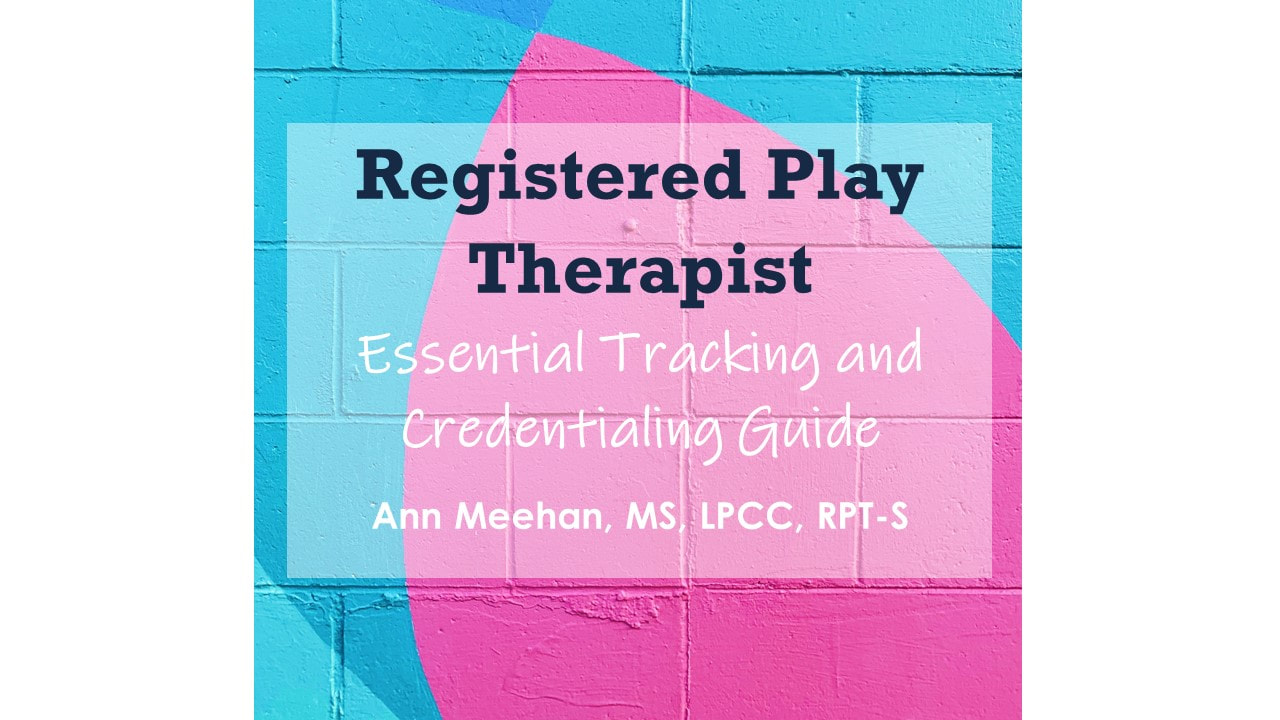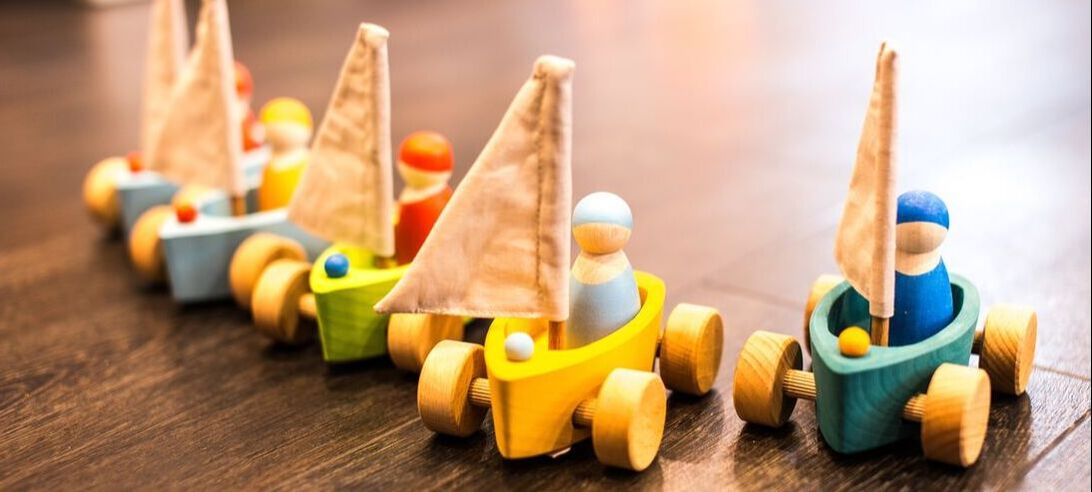|
*************JANUARY 2024 UPDATE - Get the new guide HERE! *************
New Year….new credentialing application! The Association for Play Therapy has been preparing the play therapy community over the past year for new changes on the horizon for those pursuing their Registered Play Therapist (RPT) credential. As I dove into the new RPT application I was pretty overwhelmed and frustrated with trying to take in all the changes from the previous application process. And as big as a reaction as I was having, my supervisees were doubly overwhelmed and definitely having difficulty making sense of what this meant for their credentials and what steps to take next. For those almost at the end there were worries that some of their hard work would have to be redone and for those at the beginning they were wondering if all the new hoops to jump through would be worth it. Now that I’ve had the opportunity to take a breath, or a couple like really long breaths, and begin to unravel this new journey to RPT status, it is becoming clear. Overall the major changes, going into place January of 2020, include the introduction of a three phase system. This is a departure from an application system where there were summation targets for supervision, education, and play therapy experience to earn your RPT. The phase system is meant to help play therapists earn education, session hours, and supervision at an even pace through scaffolding. For example, one could not complete all their client hours and supervision without any continuing education or vice versa. While this makes perfect sense, it has proven to be a bit challenging to put into practice. Other major changes include all supervision needing to be provided by an RPT-S (Registered Play Therapist Supervisor), completion of all criteria between 2 and 7 years, live virtual continuing education (CE) no longer counting as “in person” CE, the designation of Seminal or Historically Significant Theories for CE, the break down of continuing education areas, and increased requirement for video taped or observed sessions. Whew... that's a lot. So after taking another breath, I did what I do best when I am overwhelmed – I created a spreadsheet! You can find the 2024 UPDATE HERE! I hope either you or your supervisees will find value in using it as a tracking tool to keep your supervision, play therapy experience, and continuing education all in one place with auto calculated totals to make tracking a breeze. You will also find other resources and links inside to help guide the way to becoming an RPT! As a supervisor I found I was spending a lot of my time with my supervisees wading through this process and wanted a better way to help them make sense of all the changes, what they needed within each phase, and how to figure out the pacing to get them through to the next phase. It is our job as supervisors to hold space for our supervisees and create calm and structure in the chaos and create hope for attaining their goals. I found I wasn't able to do that well until I fully could understand and see how they would move through the system. Additionally APT is the best place to go to for specific questions true to your application or your supervisees application. You can find the new application here, new standards here, and frequently asked questions here. As we head into this new year I am hoping that the overwhelm doesn’t turn those away who are just starting out. There may be challenges to finding continuing education credit that checks all the boxes – but it is doable. The process may look different, and yes – it takes more math. BUT at the end of the process you will be an RPT, which is a designation that sets you apart as a child therapist who is able to serve the children you work with both well and ethically with the therapeutic powers of play. And if I'm getting real for a moment what I know about Play Therapists is that we are creative, resilient, and flexible. I mean, haven't we all done amazing interventions with a balloon and some string in an in the moment activity OR created an elaborate game with construction paper? We also double down and significantly research how to carry out the BEST storage for our miniatures, what is the optimal sand for our play room, OR how to take a fully stocked play kit to three schools in one day. We are Play Therapists - let’s do this! Interested in getting more training on Play Therapy? Check out my training page HERE! Let's Connect - click here to join my email list!
7 Comments
This is the time of year I am normally counting down the days to holiday break. Every year I can almost set the date on the calendar of around Thanksgiving when nearly everyone on my caseload starts to rev up. When I say “rev up” I mean more phone calls, emails, teacher reports, anxiety, and anger and less motivation, patience, and energy. And it’s not just the therapy world, it’s teachers, coaches, parents…..well nearly everyone. And if I look at my life – me too.
This time a year can be stressful for so many reasons. It’s the shopping, all the activities and celebrations, remembering your child’s outfit for red and green day at school, being out of routine, the colder weather (and for Duluth this year - the blizzard), shorter days, less sun light, and academically trying to get everything complete before semester end. For many it is an incredibly painful and sensitive time where they may be seeing family members where relationships are strained, adding new family members they might not be so sure about to the celebration, or no family members at all to share in this season. It can also be a season of firsts – in a new community, without a loved one, or the first year with parents that are separated or divorced. All this stress isn’t even covering those with financial strain who are unsure of where their next meal will come from and if there are going to be presents under the tree. Many children are left to wonder why Santa brought their best friend a new video game console but left them a board game. And then they are the young people that struggle with the break and miss the structure, social support, and predictability that the school environment provides. So if we get a little neuroscientific and think about Dr. Dan Siegel’s Window of Tolerance, our Window of Tolerance shrinks with trauma and stress. This means that we can get more easily hyperaroused and into a sympathetic nervous system response, which may mean anxiety, panic, anger and rage – for all. One one nervous system is stressed out it can put everyone else on high alert. Lisa Dion identifies four threats to the nervous system in her book Aggression in Play Therapy. They are:
Let’s pause for a moment and think how many of these factors are present during the holiday season. Oh that's right, likely all of them. If we break it down physical pain absolutely captures physical trauma, but beyond that what about those we work with who escalate quickly when a sibling bumps into them? Or they tire quickly from shoveling snow? There are also certainly many unknowns due to routine being turned upside down during most breaks. Additionally how often as adults to we “grin and bear it” during uncomfortable situations or put on a smile for a holiday we are not so thrilled about? Yea, young people pick up on that and can go into a threat response as they are unsure what is really going on. There are also MANY shoulds of how children “should” act and expectations to be on their best behavior. So how do we help the young people and families we work with, as well as ourselves, to not just survive in the holiday season, but to thrive? Being clear on WHY we have stress isn’t enough. We need to focus with our families, and ourselves, on the what next. Below are my favorites for both myself and those I work with to
What are your favorite ways to battle holiday overwhelm for either you personally or your clients? Drop a comment below and share! “Play is often talked about as if it were a relief from serious learning. But for children play is serious learning. Play is really the work of childhood.” - Fred Rogers
Each training I give on therapy with children begins with a rocking Disney playlist, but also by highlighting the importance of play as an essential and necessary component for working with children in therapy. It is a way to set the stage of WHY it is so important for children to have the gift of play in therapy. To be honest, it is what I wish I had as I started my work as a school based therapist. I vividly remember sitting across from the first set of young people I worked with and asking them how their week was. I was genuinely surprised at the amount of disconnect between how they perceived the world as opposed to the view of their parents and teachers. As I tried to apply all the things I had just learned in my graduate program, I quickly learned that I needed more than just talk. BUT I felt stuck. If I was playing with a young person, there was no real work being done…or was there? Was this really something that was making a difference in helping children reduce symptoms and strive towards mental wellness? If we can get real for a moment, newly graduated therapists can often get positions more easily working with children. BUT children are the ones who need us to show up for them the most. When you work with children you sign up for immediately going outside of your comfort zone. You have to speak a different language, work with different levels of brain development, and often find yourself doing mental gymnastics to meet the needs of both the young person in front of you and the systems they belong to. It can feel confusing, overwhelming, and frustrating to just have the ink dry on your diploma and now need a whole other set of training, skills, and expertise. But once you push through that…. IT. IS. AMAZING. The privilege and honor of watching a child grow into their strengths and develop into the person they want to be is one of the most moving experiences you can have as a therapist. It makes the extra consultation, supervision, and training totally worth it. And what other profession can you play in the sand, have sword fights, wear crowns, and make art all in one day? So, let’s get neurobiological for a minute. Children do not have the abstract reasoning abilities and verbal processing skills needed for traditional talk therapy. Furthermore, they are unable to communicate their inner states accurately through verbal intervention alone. Play is the mechanism that bridges the gap between concrete experience and abstract thought. Children also develop the right hemisphere of their brain first, which not only holds emotions but also their picture centers. Play is a visual representation of inner states that allows children to express areas of difficulty, experiences, feelings, needs, self concepts and integrate experiences. It is the agent that allows children to shift and change the way they think, feeling, and act. It is a buffer to help prevent further psychological difficulties. It’s also….fun – making it a more comfortable form of expression. Oh, and it’s an evidence based practice. If anyone is questioning this, they really need to Meet Andrew. Now the journey from play to Play Therapist requires supervision, practice, and education. If you are on your journey to become a Registered Play Therapist congratulations (and I know I am preaching to the choir)! If you are just starting to explore Play Therapy – welcome! Learn about Play Therapy Supervision HERE and Trainings HERE. Let me know your WHY for playing below! Let's Connect - click here to join my email list! |
Hi, there!I'm Ann Meehan, an LPCC, Loading... Archives
July 2024
Categories
All
|
Privacy Policies | Terms of Use | Disclaimer
Contact
[email protected] | Copyright Meehan Mental Health Services 2022
Contact
[email protected] | Copyright Meehan Mental Health Services 2022






